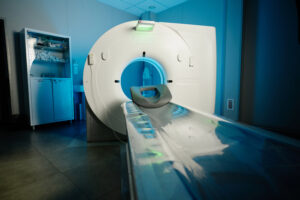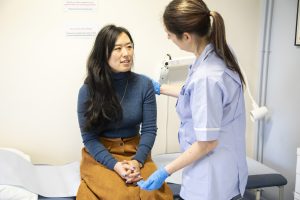There is no single cause of colorectal cancer. It can develop over a long period of time without any signs or symptoms. Screening tests can find polyps so they can be removed before turning into cancer. Screening also helps find colorectal cancer at an early stage, when treatment works best.
Learn more about this deadly disease and how to prevent it during this colorectal cancer awareness month.
Table of Contents
ToggleWhat is Colorectal Cancer?
Colorectal cancer includes two types of cancers: cancer that begins in the colon is called colon cancer, and cancer that begins in the rectum is called rectal cancer. Cancer that affects either of these parts may also be called colorectal cancer.
The colon and the rectum form part of the digestive tract, also called the gastrointestinal or GI tract. Sometimes abnormal growths, called polyps, form in the colon or rectum. Over time, some polyps may turn into cancer.
What Causes Colorectal Cancer?
Colorectal cancer happens when there are changes in the genetic material (DNA). These changes are also called mutations or variants. Often, the genetic changes that lead to colorectal cancer happen during one’s lifetime and the exact cause is unknown. But certain genetic changes that raise the risk for colorectal cancer are inherited, meaning that you are born with them.
Besides genetics, other factors, including lifestyle and the environment, can affect the risk of colorectal cancer.
Colorectal Cancer Symptoms
Colorectal cancer may not cause any signs or symptoms in its early stages because the cancer is very small. Symptoms often appear once a tumor grows into surrounding tissues and organs. If there are symptoms, they could include:
- A change in bowel habits, such as diarrhea, constipation, or narrowing of the stool, that lasts for more than a few days
- A feeling that you need to have a bowel movement that’s not relieved by having one
- Rectal bleeding with bright red blood
- Blood in the stool, which might make the stool look dark brown or black
- Cramping or abdominal (belly) pain
- Weakness and fatigue
- Unintended weight loss
Colorectal cancers can often bleed into the digestive tract. Sometimes the blood can be seen in the stool or make it look darker, but often the stool looks normal. But over time, the blood loss can build up and can lead to low red blood cell counts (anemia). Sometimes the first sign of colorectal cancer is a blood test showing a low red blood cell count.
How to Prevent Colorectal Cancer?
Doctors recommend that people with an average risk of colon cancer consider starting colon cancer screening around age 45. But people with an increased risk should think about starting screening sooner. People with an increased risk include those with a family history of colon cancer.
Healthcare professionals have screening tests and treatments that detect and remove precancerous polyps. Keeping up to date with colorectal cancer screening is an important part of prevention. A screening test checks for the presence of colorectal cancer when there are no signs and symptoms of the disease. Participating in screening helps to remove precancerous polyps before they become cancerous and helps to detect colorectal cancer at an earlier stage, when the cancer is more treatable.
There are several different tests that are used for colon cancer, including stool tests, flexible sigmoidoscopy, colonoscopy, and CT colonography (virtual colonoscopy).
Why Virtual Colonography?
Virtual colonoscopy – also called virtual colonography – is a high end technology that uses a CT scanner to provide rendered images of the entire large bowel. It takes hundreds of cross-sectional images of the belly organs to provide a complete view of the inside of the colon and rectum and checks for cancer, polyps, and ulcers. It’s a more comfortable, less invasive, and equally effective form of a colon health screening compared to a traditional colonoscopy.
InvestMed offers risk-specific packages such as the cancer screening package which includes virtual colonoscopy or a comprehensive package to analyze your overall health and wellbeing. Each package includes a comprehensive 1 hour physical exam and 1 hour review of results with recommendations to achieve optimal health. Call today at 236.766.0997 to learn more or request an appointment online.





